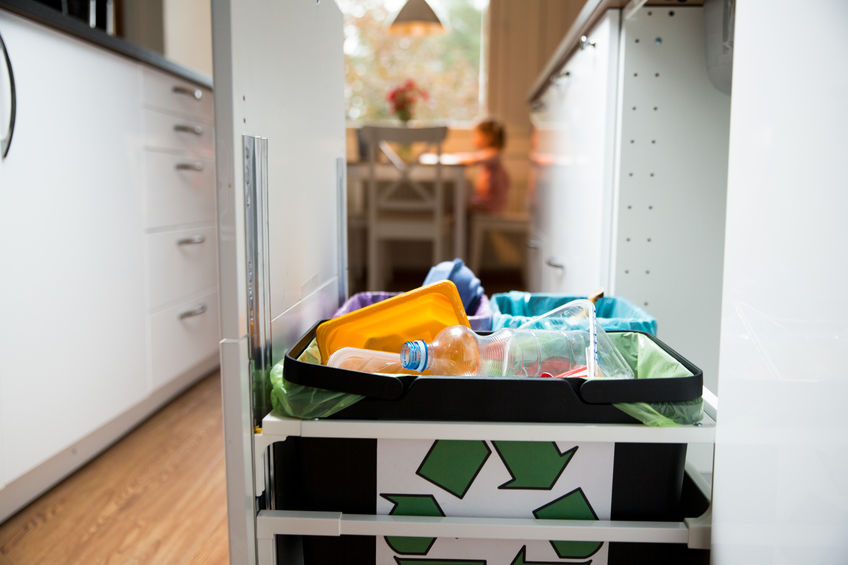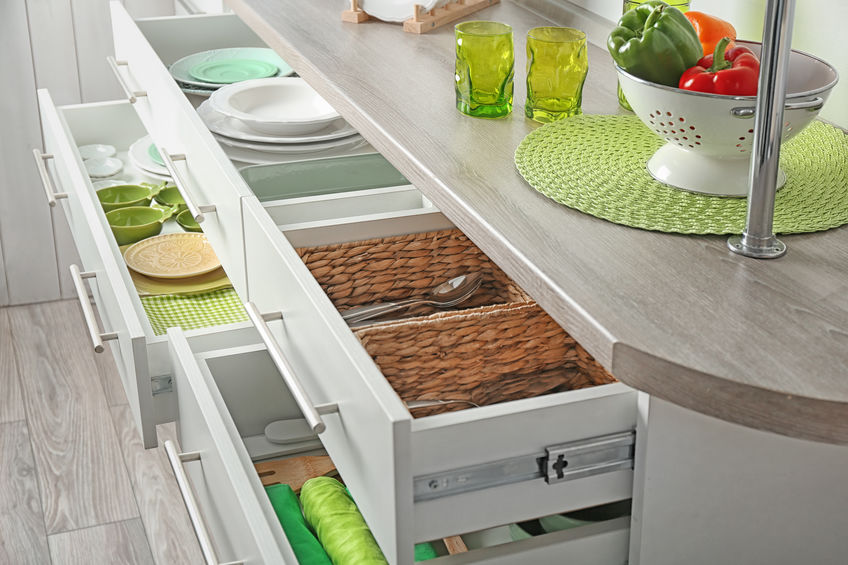Tips For Cleaning Floors
Tips for cleaning floors. I love walking into a room with clean and shiny floors. Who doesn't? But cleaning floors? Not so much.
Our floors are a potluck of dirt, germs, and grime. Cleaning floors using the right cleaners for a floor's surface is critical.
But how do you know what to use on them?
Grocery store shelves are filled with a confusing array of floor-cleaning products. This guide can help you determine the best solution for cleaning floors in your home.
Tips For Cleaning Floors: Love that Linoleum
This retro-cool flooring is made from organic materials (i.e., linseed oil, plus many additives, including cork, pine resin, and minerals) and is antibacterial and non-allergenic.
As a result, this is easy-peasy stuff. Damp-mop every few days or so. (Gentle reminder here: Damp-mopping is not wet-mopping.) Too much water exposure can make your linoleum floor brittle.
For really dirty jobs, when a more in-depth cleaning is required, use a neutral Ph cleaner, such as a few squirts of liquid dish soap in your mop bucket, and lightly go over the floor's surface.
CLEANING DON'TS: Hot water, strong alkaline cleaners, such as ammonia, bleach, hydrogen peroxide, anything abrasive.
Maintaining a Vinyl Floor
Tiles or sheets of vinyl are soft to walk on and are available in many colors and patterns—some designed to resemble granite, marble, wood, or other natural materials.
All vinyl floors are coated with clear vinyl or urethane layers, making them relatively easy to keep clean and bright—as long as you keep daily dirt out of surface crevices.
Vacuum regularly to keep dust and grit from becoming ground-in.
Clean regularly by damp mopping with water only. When a deeper clean is needed, a cleaner with a surfactant will provide the muscle you need to get your floor clean.
You can also clean with ammonia and water, which also works well for a cork floor with a urethane finish.
CLEANING DON'TS: Anything soapy, such as mop-and-shine products, abrasive cleaners, and paste wax.
Tips For Cleaning Floors: Hardwood
Warm, durable hardwood floors are easy to clean. Be sure to wipe up any liquid on the floor's surface promptly.
The only other consideration is keeping grit and sand off the surface to minimize scratches.
Vacuum the floor thoroughly weekly. For a deeper clean, choose a wood floor cleaning product with a neutral pH. Wring the mop almost dry before mopping.
CLEANING DON'TS: Standing water is the biggest threat to your hardwood floor's longevity.
Keep Laminates Lovely
Laminates are hard materials consisting of two or more layers bonded together: a hard, thick base made of chipboard or similar material encased in a plastic laminate to get the look of hardwood without the cost and care.
Keep laminate floors clean by regularly vacuuming, dust-mopping, or wiping them with a damp (not wet) cloth. For tough dirt and grime, use a diluted vinegar solution. Buff away stubborn stains with undiluted acetone nail polish remover.
CLEANING DON'TS: soap-based detergents (they'll make the floor slippery after cleaning) and abrasive cleaners or tools like steel wool (they can scratch the surface sheen).
Tips For Cleaning Floors of Natural Stone
Wipe or damp-mop natural stone floors daily to remove dust and tracked-in dirt. Even when sealed, these floors can be easily stained, especially by liquids. Make sure to wipe up spills as they happen throughout the day.
For easier cleanups, hang the floor's damp mop in a nearby closet. Daily wipe-downs may seem cumbersome, but if you keep up with the cleaning, the floors will look lustrous for years.
CLEANING DON'TS: Dusting sprays, chemically treated mops or cloths, alkaline cleaners such as ammonia, and strong soaps and detergents.
Treat Tiles Right
Regularly vacuum and damp-mop to remove dirt, dust, and sand to prevent ground-in grunge from scratching the shiny surface. Use a neutral pH cleaner to keep the glossy finish intact for a deeper clean.
CLEANING DON'TS: Standing moisture can cause damage; mop up spills immediately.
Terrazzo
This polished natural stone also benefits from regular sweeping and damp-mopping, using water and mild detergent.
Since this surface stains easily and the glossy finish tends to wear quickly, professional products are the safest cleaning bet.
Cleaning Concrete Floors
This may be the ideal kitchen flooring. To maintain it, you only need to sweep, vacuum, or damp mop regularly.
- Clean Home
- Kitchen
- Cleaning Floors










